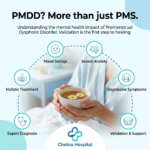Introduction:
Hernias are a common medical condition that affects millions of people worldwide. They occur when an organ or tissue protrudes through a weak spot in the surrounding muscle or connective tissue. In this comprehensive guide, we will delve into the causes, symptoms, diagnosis, and treatment options for hernias.
- Types of Hernias:
- Inguinal Hernia: Most common type, occurs in the groin area.
- Hiatal Hernia: Involves the upper part of the stomach pushing through the diaphragm.
- Umbilical Hernia: Affects the belly button area, common in infants.
- Incisional Hernia: Develops at the site of a previous surgical incision.
- Causes of Hernias:
- Weakness in the abdominal wall due to age or genetic factors.
- Straining during bowel movements or heavy lifting.
- Pregnancy and childbirth can increase the risk of hernias.
- Chronic coughing or obesity can also contribute to hernia development.
- Symptoms of Hernias:
- Visible bulge or lump in the affected area.
- Pain or discomfort, especially during physical activity or when coughing.
- Nausea, vomiting, and difficulty passing stools in severe cases.
- Heartburn and chest pain in hiatal hernias.
- Diagnosis of Hernias:
- Physical examination by a healthcare professional.
- Imaging tests such as ultrasound, CT scan, or MRI to confirm the diagnosis.
- Endoscopy may be used for hiatal hernias to assess the extent of damage.
- Treatment Options for Hernias:
- Watchful Waiting: Small, asymptomatic hernias may not require immediate treatment but should be monitored regularly.
- Lifestyle Changes: Avoiding heavy lifting, maintaining a healthy weight, and quitting smoking can reduce the risk of hernias.
- Hernia Truss: A supportive device worn over the hernia to provide temporary relief, but not a long-term solution.
- Surgical Repair: The most effective treatment for hernias, either through open surgery or minimally invasive laparoscopic techniques.
- Surgical Hernia Repair:
- Open Hernia Repair: Involves making an incision near the hernia site and repairing the weakened muscle or tissue using sutures or mesh.
- Laparoscopic Hernia Repair: A minimally invasive approach where small incisions are made, and a camera and instruments are used to perform the repair with less scarring and faster recovery.
- Robotic Hernia Repair: Advanced robotic technology can assist surgeons in performing precise hernia repairs with enhanced dexterity and visualization.
- Recovery and Post-operative Care:
- Patients undergoing hernia surgery can typically return home the same day or after a short hospital stay, depending on the procedure.
- Pain management medications and instructions on wound care are provided.
- Gradual resumption of normal activities under the guidance of healthcare providers.
- Follow-up appointments to monitor recovery progress and address any concerns.
- Complications and Risks Associated with Hernias:
- Strangulation: When a hernia becomes trapped and its blood supply is compromised, leading to tissue damage and severe pain.
- Infection or recurrence at the surgical site.
- Nerve damage or chronic pain in rare cases.
- Adverse reactions to anesthesia or surgical complications.
- Prevention Strategies for Hernias:
- Maintain a healthy weight and engage in regular exercise to strengthen abdominal muscles.
- Practice proper lifting techniques, bending at the knees and using leg muscles rather than the back.
- Treat underlying conditions such as chronic cough or constipation promptly.
- Avoid smoking and excessive straining during activities.
- Living with Hernias:
- With appropriate management and lifestyle modifications, many people with hernias can lead active and fulfilling lives.
- Regular check-ups with healthcare providers are essential to monitor hernias and address any changes or symptoms promptly.
- Support groups and resources are available for individuals seeking information and guidance on hernia management.
Conclusion:
Hernias are a prevalent medical condition that can cause discomfort and complications if left untreated. Understanding the causes, symptoms, and treatment options is crucial for early diagnosis and effective management. By adopting preventive measures and seeking timely medical intervention, individuals can minimize the impact of hernias on their health and well-being. Consultation with a healthcare professional is recommended for personalized assessment and guidance regarding hernia care.
#besthospital #pcmc #pune #medical#medicalserviceshernia #hiatalhernia #hernia #inguinalhernia #umbilicalhernia #herniasurgery #inguinal #femoralhernia #herniaoperation #epigastrichernia #ventralhernia #herniatreatment #typesofhernia #herniadisease #herniainmen













